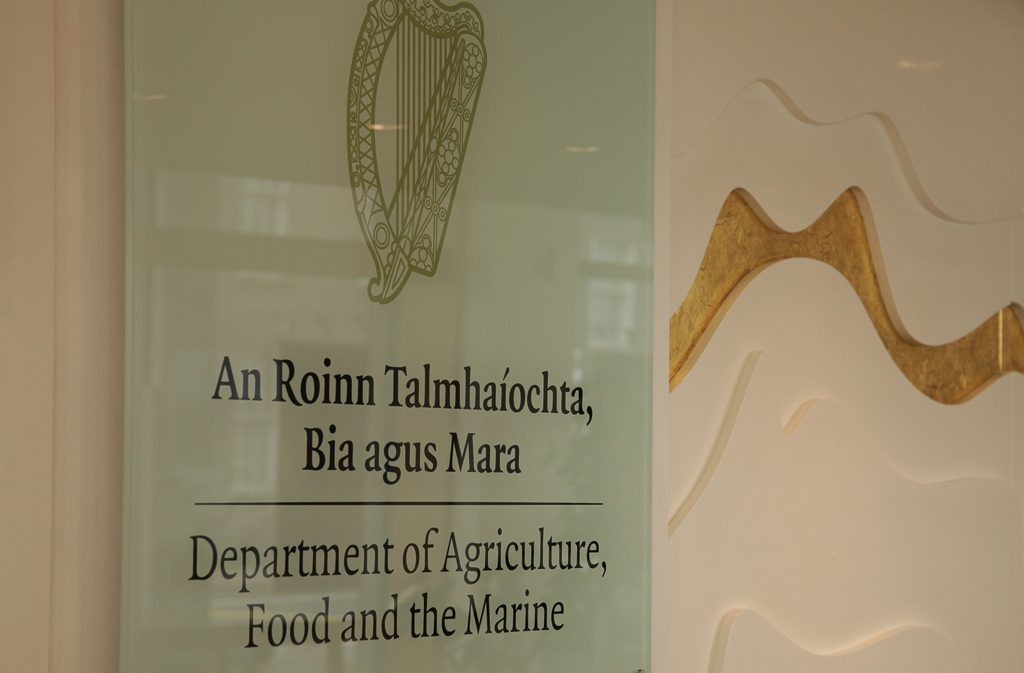Minister of State at the Department of Agriculture, Food and the Marine Pippa Hackett has outlined that the department has a “detailed project plan” in place to tackle the ongoing issue of felling and afforestation licence backlogs.
This situation has blighted the forestry sector of late; while acknowledging this the minister warned that the issues causing this backlog also need to be solved.
This was just one of a number of topics discussed during a broad-ranging interview, with AgriLand editor Jim Breen and news journalist Sylvester Phelan.
Speaking to AgriLand yesterday, Monday, July 27, Minister Hackett revealed her stance on the forestry sector and the ongoing issue of licensing.
The current felling licence backlog is proving to be a contentious issue. Is there a long-term solution to allay stakeholder concerns?
Minister Hackett: There certainly is. I get contacted quite frequently by farmers especially – wanting to plant. It’s not only [at] the felling end; it’s the other end as well. The afforestation end is being frustrated [among] people on the ground.
It’s worth stating [the importance of being] aware of why the complaints are coming in…and to understand where the problem is coming from…and then move on from this.
Both of those elements are being considered by the department in relation to that.
The department has a detailed project plan in place to deal with this and has done some work already. Even within the last year there have been quite substantial changes in the department in terms of how it deals with licensing for afforestation in the first place and, of course, for felling.
This time last year there was one ecologist working on licensing. Now, by the end of August, we are going to have 12. This is a substantial increase. There is a very positive movement within that; this would have to be acknowledged.
We want to address the Programme for Government commitments to realign forestry licensing with regular planning permission…and we are working towards that.
I will have a memo going to cabinet this afternoon [Monday] to highlight this and to draw the cabinet’s attention to it. Hopefully we will start to unlock some of those problems.
You have seen in the Programme for Government the [commitment to] implement the McKinnon report [which focused on the application approval process for afforestation in Ireland], which was broader than just the realignment of planning. It was also for some of the more ‘considered’ aspects.
There is no point opening up the floodgates without addressing the issues that have caused these problems in the first place.
We need to take a holistic approach. I think the department is trying really hard to do that.
At a procedural level, there is anecdotal evidence of a small number of people lodging a large number of objections/appeals – even outside their own areas. This is holding up operations. Is that a real concern? Are such complaints legitimate?
Minister Hackett: You must consider what the complaints are about.
If you de-legitimise them it will just infuriate a whole group of other people. It’s not literally just two or three people; I know they are the instigators of the complaints but they represent broader groups on the ground and communities on the ground.
You only have to take a trip up to Co. Leitrim and speak to groups up there to see the frustration with the type of model that we have followed.
We’ve learned from that and the department has learned from that. You can see the way trees were planted 10, 15 or 20 years ago would not be the way they would be planted now.
There has been an evolution there. It’s not – maybe – seen on the ground just yet.
There was speculation, during the previous administration, around the prospect of fees for lodging objections. Is that likely?
Minister Hackett: That might be part and parcel of the suggestions going to cabinet this [Monday] afternoon – to bring it more in line with the regular planning process.
Stay tuned to AgriLand for further articles (on other pressing topics) from our extensive interview with Minister Hackett…
![Hackett interview: ‘No point opening [forestry licence] floodgates without addressing issues’](https://cdn.agriland.ie/uploads/2020/07/Source-agriland-Pippa-Hackett3.jpg)

